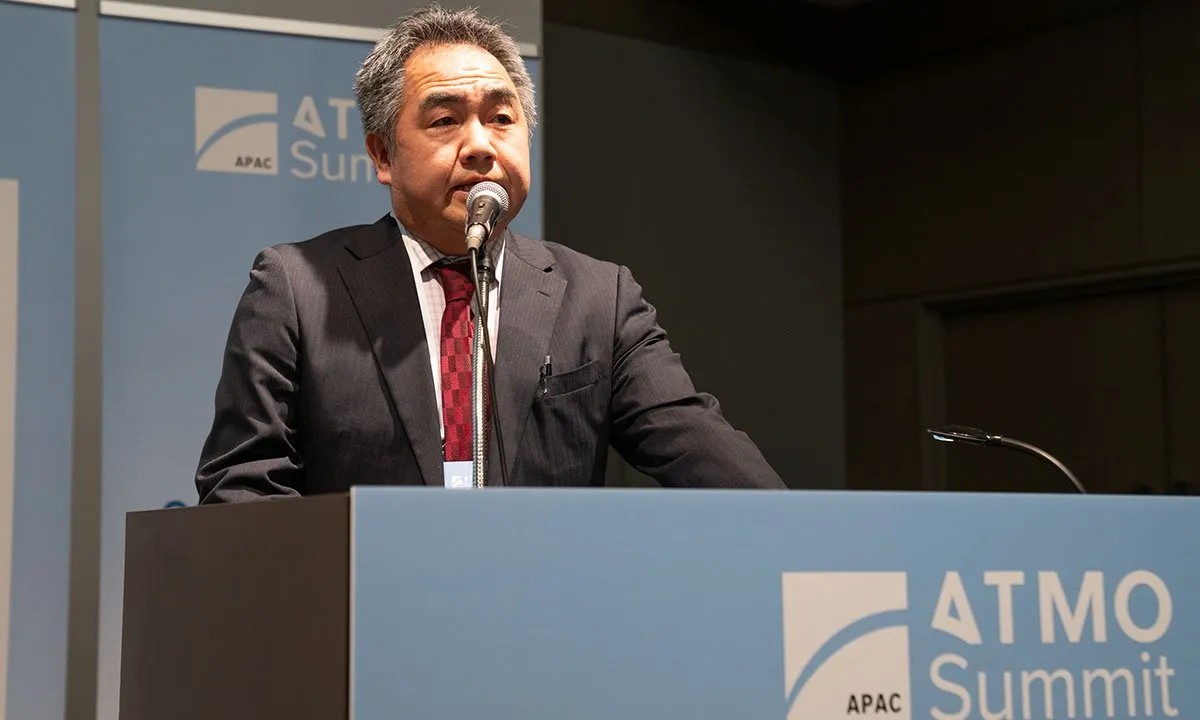Subsidies are ‘key’ for Japan’s transition to natural refrigerants, says AEON
February 21, 2024

Subsidies are “key” for Japan’s adoption of natural refrigerants like CO2 (R744) and hydrocarbons according to Masafumi Okuda, Manager of the CSR (Corporate Social Responsibility) Department at AEON, a multinational retailer headquartered in Chiba, Japan.
“In order to reduce investment costs, we want to increase the number of stores that will use natural refrigerants [to achieve economies of scale] and use subsidies as much as possible,” said Okuda.
The company – which operates some 2,300 supermarkets, more than 3,100 drug stores and thousands of other retail stores across the Asia–Pacific (APAC) region – has gradually been transitioning to natural refrigerant-based equipment since 2009, explained Okuda.
Government subsidies have played an important role in some of AEON’s natural refrigerant projects. For example, at the company’s new AEON STYLE store in Toyokawa, which opened in April 2023, subsidies covered roughly one-third of the cost of procuring and installing a CO2-based refrigeration system and 424m (1,391ft) of refrigerated cases.
As of 2022, AEON had “comprehensively installed” natural refrigerant equipment in 1,407 of its stores in Japan. The majority of these installations have been in “mini” supermarkets (623), drug stores (578) and full-size supermarkets and discount stores (136), he added. In addition to adopting CO2-based refrigeration technologies, AEON also frequently installs propane (R290) equipment at its stores, namely plug-in refrigerated display cases.
“As a general rule, natural refrigerant equipment will be prioritized in new stores and large-scale renovations,” said Okuda. The company will also “prioritize equipment updates for [HFC] systems with large amounts of leakage,” he noted.
Okuda shared details of AEON’s transition to natural refrigerants during the end-user panel session at the ATMOsphere APAC Summit 2024, which was held at the Tokyo Conference Center Shinagawa from February 6–7. ATMOsphere organized the event and is the publisher of R744.com.
In June 2023, the Japanese Ministry of the Environment (MOE) declared it will continue its natural refrigeration equipment installation subsidy project through fiscal year 2027. The project is now known as “Promotion of HFC-Free and Decarbonization of Refrigeration Equipment Supporting the Cold Chain” after being known from 2018–2022 as the “Project to Accelerate the Introduction of Energy-Saving Natural Refrigerant Equipment for the Early Realization of HFC-Free and Low-Carbon Society.” The subsidy program was introduced in 2005 and to date has provided funding for 3,630 projects, the vast majority of which (2,478) have been in the commercial refrigeration sector, according to the ATMOsphere 2023 Market Report (p. 110).
Goal to be HFC-free
In recognition of the company’s “significant” environmental impact, Okuda said AEON developed a Sustainability Principle in 2011 – which was revised in 2018 – that covers all aspects of the business, from production and logistics to sales and consumption.
“AEON’s goal is to achieve net-zero emissions by 2040, and in support of this, the company is taking measures to be HFC-free through the “proactive introduction” of natural refrigerants,” said Okuda.
AEON installed its first natural refrigerant-based equipment in 2009 at its MaxValu Express store in the Rokugodote neighborhood of Tokyo. In 2011, the company declared that it would use natural refrigerants in all new stores. However, according to Okuda, this has been quite difficult to fulfill.
By 2020, AEON had installed natural refrigerant equipment in more than 1,000 of its stores.
“Looking to the future, we still have some challenges to overcome,” said Okuda. “In order to expand the use of natural refrigerants, our own efforts may not be enough. We need to collaborate with various stakeholders to promote the use of natural refrigerants further.”
60% energy savings
In 2022, the retailer launched a new store format that focuses on frozen produce called @Frozen. In these stores, AEON has opted for R290-based built-in frozen cases. At its first @Frozen location in Chiba, 55 propane showcase units were installed, all from Daikin’s AHT brand.
The company has since opened an additional five branches in the Tokyo metropolitan area and has plans for further expansion.
According to Okuda, this approach has offered numerous benefits, including a 60% reduction in energy consumption and an 80% reduction in exhaust heat compared to “conventional models.”
The company’s MaxValu stores also use R290 cases, he said.
While AEON’s stores are predominantly in Japan, the company also operates in 13 other countries across the APAC region. To date, AEON has yet to develop a natural refrigerant strategy for its stores in Southeast Asia in part due to a lack of awareness, said Okuda.


